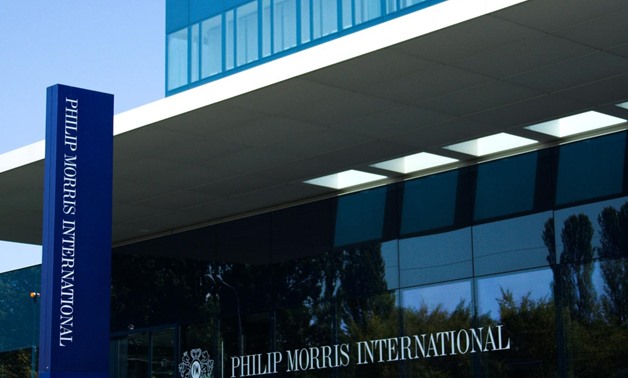
Philip Morris International's operational headquarters are pictured in Lausanne August 19, 2009. REUTERS/Denis Balibouse
CAIRO – 27 February 2019: An agreement between Philip Morris and the Eastern Tobacco Company (ETC) that awarded the former advantages that they have no right to, according to claims by the ETC, and led the latter to lose LE 200 million has left the economic world in controversy.
The agreement stipulated that Philip Morris will pay in Egyptian pounds instead of US dollars; this came on the pretext that it is difficult, according to Philip Morris, to get US Dollars at this point due to the difficult junction within which the Egyptian economy resides.
“Due to the change in the exchange rate of the US dollar by more than 150 percent, a step that severely harmed the commercial interests of both Philip Morris International (PMI) and Philip Morris Misr, both companies have all the right to renegotiate their agreement with Eastern Company to restore the economic balance. The modified form of the agreement was approved Eastern Company’s general assembly,” Eastern Company’s statement then to justify the new developments.
The Eastern Company was pressured by PMI to settle to $5.8 as the manufacturing fees of 1,000 cigarettes among Zero to 15 billion cigarettes and $6.2 for 1,000 cigarettes among 15 to 22 billion cigarettes.
PMI has unfairly insisted to pay its dues to the Eastern Company in the local currency instead of the US or any other foreign currencies which have caused severe damage to the Egyptian economy eager to increase its FX reserves.
PMI has delayed the payment of what estimated to be $200 million to the Eastern Company in return for the manufacturing fees of cigarettes. Eastern Company has gone through massive financial losses with its export revenues reduced to $14 million.
Accordingly, the Egyptian Parliament’s industrial committee has started to look into the agreement, which they view as suspicious.
This all comes on a heels of an agreement two years ago between the Eastern Company and Philip Morris Misr, in which the Egyptian company agreed to present a modified form of the manufacturing agreement with Philip Morris Misr due to the Egyptian Central Bank’s call to float the Egyptian pound on November 2016.
Philip Morris and the Chemical Industries Holding Company claimed that the amendment to the manufacturing contract guarantees the payment of all of the Eastern Tobacco Company's liabilities, stating that it would not affect the company’s revenues from its dealings with the foreign company, which make up about 80% of its total revenue that stands at about LE 1.5 billion.
In the same context, Egypt’s Consumer Protection Agency (CPA) has received several complaints about PMI’s role in increasing prices of cigarettes and its involvement in tax evasion incidents.
English health institution “Cancer research UK” has accused PMI on October 23 of hypocrisy as the latter was running a PR campaign to encourage people into quitting smoking, while it sustains its industry in other countries.
“It’s staggering hypocrisy, where this tobacco giant is running a PR campaign in the UK to promote its own ‘quit smoking’ products, all the while continuing to promote its deadly tobacco products in countries where it’s still legal to do so,” Cancer Research UK report said.
The Cancer Research UK also reported that In 2011, Philip Morris International launched its ‘Be Marlboro’ campaign, which has been strongly criticized for deliberately targeting young people and encouraging them to take up smoking.
And in 2015, the company filed a lawsuit against the UK Government over its plan to introduce plain packaging for tobacco products, a measure to make cigarettes less appealing to children.
Philip Morris Misr LLC. was established in 2013 and are the licensee for Philip Morris International (PMI) products in Egypt. In 1985, PMI signed a manufacturing agreement with the local state monopoly, Eastern Company, to produce PMI brands.


Comments
Leave a Comment